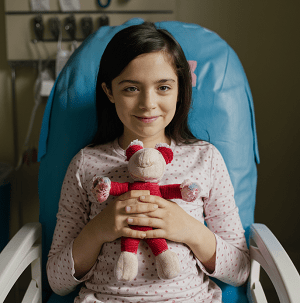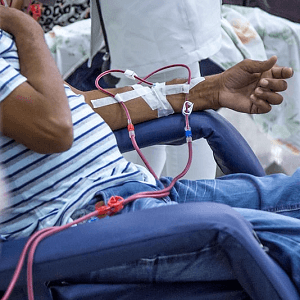A genetic variant found predominantly in people of Hispanic/Latino origin increases the risk of acute lymphoblastic leukemia (ALL) in children by about 1.4 times, according to a new study from the Keck School of Medicine of USC. This discovery may help explain why Hispanic/Latino children in the United States are 30-40% more likely to develop ALL, the most common childhood cancer, compared to non-Hispanic white children.
The study, published in Cell Genomics, identified a variant on the IKZF1 gene present in about 30% of Hispanic/Latino people in the U.S. but virtually absent in those of predominantly European ancestry. Using genetic fine-mapping analysis, researchers analyzed data from nearly 75,000 children in California, including those with and without ALL across different ethnic groups.
“Combined with the fact that around 30% of Hispanic/Latino people in the United States carry this gene variant, but it’s basically absent in people of predominantly European ancestry, we think it’s an important contributor to the increased ALL risk among this group,” said lead author Adam de Smith, PhD, from the Keck School of Medicine.
The researchers found that the variant reduces the expression of IKZF1, potentially keeping B-cells in a more immature state and increasing the risk of developing mutations that lead to leukemia. This insight could lead to improved screening tools and targeted therapies for ALL in Hispanic/Latino children.
The study also revealed that the risk variant is linked to Indigenous American ancestry, suggesting it may have offered a selective advantage at some point in human history. Researchers hope these findings will contribute to addressing health disparities and improving outcomes for Hispanic/Latino children with ALL.



